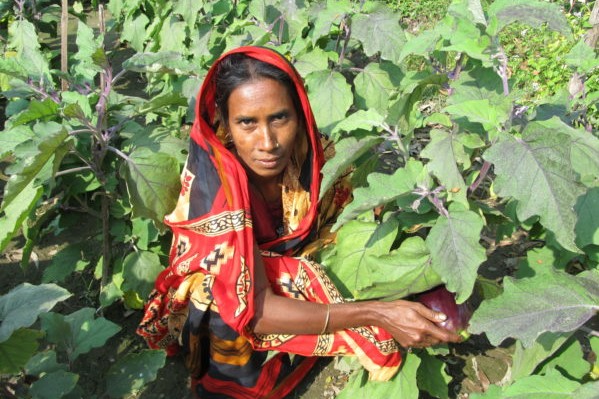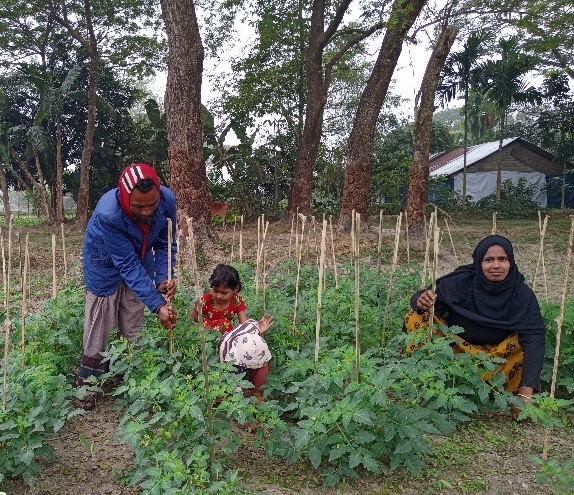 Bangladesh Kendua
Bangladesh Kendua
$50,023 needed of $86,930

Implementing Organization
World Renew
Program Summary
This is the second phase of the Bangladesh Kendua program and it builds upon the learning from the first phase and expands to one additional community. Local partner SATHI starts with primary self-help groups of men and women meeting separately. These groups are each represented at the “Union Committee” level and the various union committees come together to form a “People’s Institution”. The People’s Institution and Union Committee both have Agriculture sub-teams and the program is designed to equip those teams to improve community food security.
The COVID-19 pandemic has negatively affected community life in Kendua despite the success of the first phase. In a recent survey, 92% of respondents reported that their livelihood has been in critical condition due to COVID-19. 53% said they did not have enough food. 78% of respondents had reduced income and 22% had no income. Extreme poverty in the country has increased from 24% to 48%.
The program is working to assist and equip the communities to regain their strength and ability to cope with the crisis while reducing the gaps created because of COVID-19. Farmers groups focused on fish, vegetables and poultry are being established in each union to make a variety of food locally available, even in challenging times.
Ruma's Story
Success Stories

Caring for Those Who Cared for Her
Mina’s husband and in-laws took care of her when she was desperately ill after the birth of one of her children. She is now healthy and pleased to be able to take care of them with her home-gardening, poultry-raising and fish-farming efforts.
The whole extended family depended on the small income earned by her husband at a garment factory in a nearby town. There was no money to pay for long-term care when Mina got sick, so her husband moved back to the village and started working as a day laborer, and everyone pitched in to nurse her. When Mina got better, she joined a women’s self-help group and started learning about homestead farming. Her mother-in-law was concerned for her health and didn’t think she should participate in group activities, but Mina couldn’t resist the chance to lift her family out of poverty.
Her group selected her and four others to complete Model Farmer training. Their lessons included methods for growing a variety of vegetables, organic pest management, making and using worm compost, raising and vaccinating poultry, and fish farming. Mina’s first harvest of vegetables was not large but it met household demand. The rich worm compost produced good results, and Mina was able to sell some of her veggies and made a profit, especially after enlarging her operations by cultivating some unused land next to the house. Loans from her savings group have helped her business grow.
Mina’s husband started supporting her work, and together they have become known as ideal farmers in the village. Imagine her satisfaction at being able to support the family which supported her when she needed them most. They are enjoying fresh produce, eggs, meat and fish for the first time. Everyone joins in the work, and everyone is busy but happy. Mina is even sending her children to school. She and her husband want them to get a good education to be able to serve others one day.
Says Mina, “Now I am living a happy and peaceful life with my family members. Everyone involved with our group has increased their own family’s food security like mine and are helping others in the community to do the same.”
Bangladesh Kendua Program
Led by World Renew and Local Partner Sustainable Association for Taking Human Development Initiatives (SATHI)
